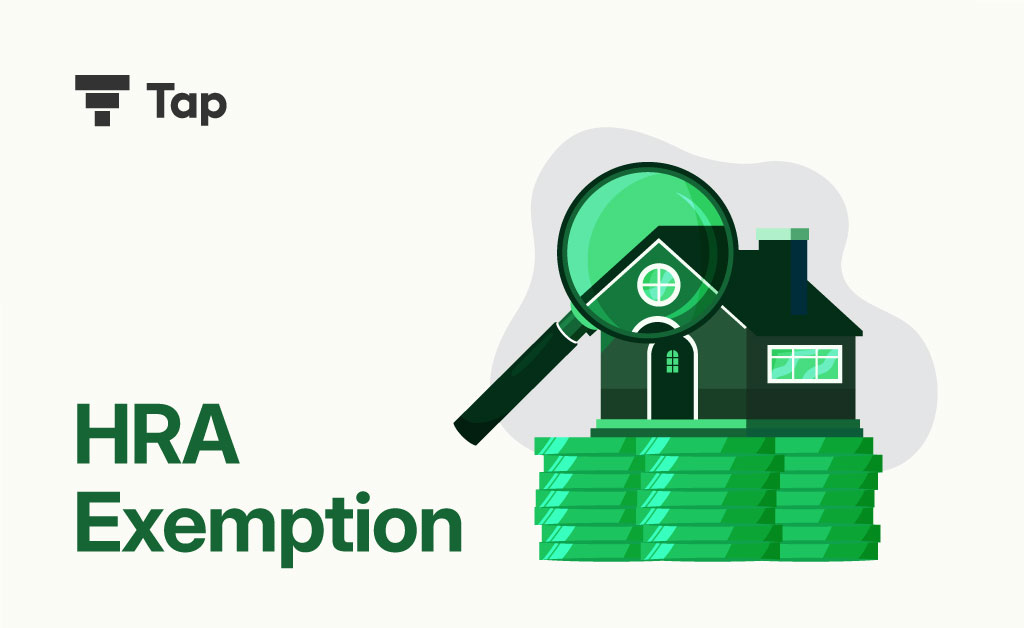Maximize Your Tax Savings with HRA Exemption: A Complete Guide

House Rent Allowance (HRA) is a crucial component of a salaried individual’s income. It is provided by employers to employees to meet their rental expenses. Understanding HRA and its exemptions can help you maximize your tax savings. This article covers everything from the basics of HRA to detailed calculations and exemptions.
What is HRA?
HRA, or House Rent Allowance, is a specific allowance provided by employers to employees to cover their rental expenses. This allowance is a part of the salary package and can be partially or fully exempted from taxes under certain conditions.
HRA Full Form
HRA stands for House Rent Allowance.
HRA Exemption
The HRA exemption is a tax benefit that allows employees to claim a deduction on their House Rent Allowance. This exemption can significantly reduce taxable income, thus lowering the overall tax liability.
How to Calculate HRA in Salary
The calculation of HRA exemption is based on the least of the following three criteria:
- Actual HRA received from the employer.
- 50% of salary (basic salary + dearness allowance) for those living in metro cities, or 40% for those living in non-metro cities.
- Actual rent paid minus 10% of salary (basic salary + dearness allowance).
The formula can be represented as: \text{HRA Exemption} = \min(\text{Actual HRA Received}, \text{50% (or 40%) of Salary}, \text{Rent Paid} – 10\% \text{of Salary})
HRA Calculation Formula
To simplify: HRA Exemption=min(A,B,C)\text{HRA Exemption} = \min(\text{A}, \text{B}, \text{C})HRA Exemption=min(A,B,C) Where:
- A = Actual HRA received
- B = 50% of (Basic Salary + DA) for metro cities / 40% for non-metro cities
- C = Rent paid – 10% of (Basic Salary + DA)
HRA Exemption Calculator:
Using an HRA calculator can make the process of determining your HRA exemption straightforward. You simply need to input your basic salary, dearness allowance, actual HRA received, and the rent you pay.
How to Calculate HRA Exemption in Salary:
- Calculate 50% (metro) or 40% (non-metro) of your basic salary + DA.
- Determine the actual rent paid minus 10% of your basic salary + DA.
- Compare these amounts with the actual HRA received.
- The least of these values will be your HRA exemption.
HRA Deduction
HRA deduction is the exempted part of your HRA from your taxable income. This deduction can be claimed while filing your income tax returns, reducing your overall tax liability.
HRA Exemption Meaning
HRA, or House Rent Allowance, is an allowance given by employers to employees to cover rental expenses. It is a part of the salary and can be exempted from taxes under certain conditions.
Calculating Your HRA Exemption: A Formula for Savings
Calculating your HRA exemption involves considering three critical factors:
- Your HRA amount: The amount your employer provides as HRA in your salary structure.
- Your actual rent paid: The monthly rent you pay to your landlord, excluding maintenance charges.
- Your basic salary + dearness allowance (DA): This combined figure forms the basis for calculating the minimum HRA exemption you can claim.
Here’s the formula to determine your maximum HRA exemption:
Minimum of:
- Actual rent paid – 10% of your basic salary + DA
- 50% of your basic salary + DA (if you live in a metro city)
- 40% of your basic salary + DA (if you live in a non-metro city)
- Your HRA amount
Claiming HRA Exemption: Essential Requirements
To claim HRA exemption, ensure you meet the following criteria:
- You must be a salaried individual.
- You must be paying rent for a place you are using as your residence.
- You must have valid rent receipts from your landlord, mentioning their PAN details if the annual rent exceeds ₹1 lakh.
FAQs
1. What is the full form of HRA in salary?
- HRA stands for House Rent Allowance.
2. How is HRA calculated?
- HRA is calculated based on the least of actual HRA received, 50% of salary (metro) or 40% of salary (non-metro), and rent paid minus 10% of salary.
3. Can I claim HRA exemption if I live with my parents?
- Yes, you can claim HRA exemption if you pay rent to your parents, provided they declare this rental income in their tax returns.
4. What documents are required for HRA exemption?
- To claim HRA exemption, you need to provide rent receipts and the rental agreement.
5. Is HRA fully exempt from tax?
- No, HRA is not fully exempt from tax. The exemption is based on specific criteria, and only a portion of HRA can be exempted.
Conclusion
Understanding HRA and its exemptions can help you make significant tax savings. By accurately calculating your HRA exemption, you can ensure that you benefit from this provision to the fullest. Use HRA calculators and stay informed about the latest tax laws to maximize your savings.
Ready to simplify your tax filing journey? Sign up on Tapinvest.in today and explore our comprehensive tax solutions!
